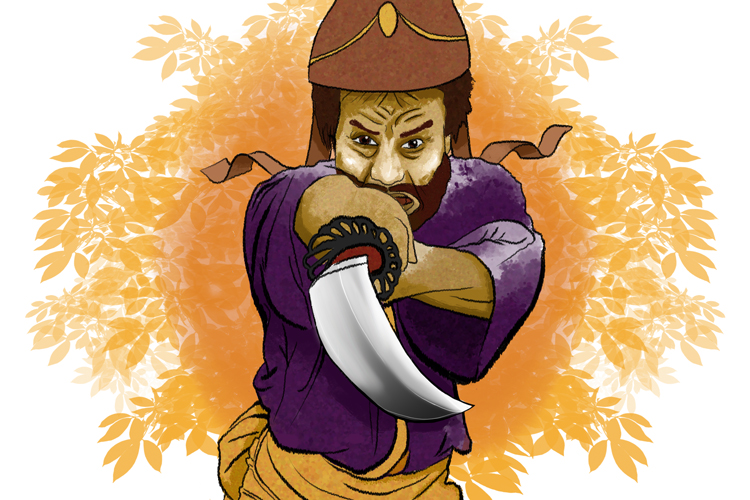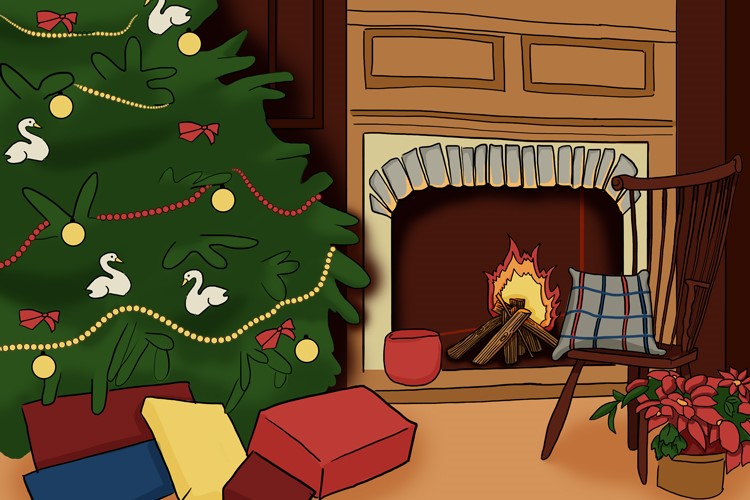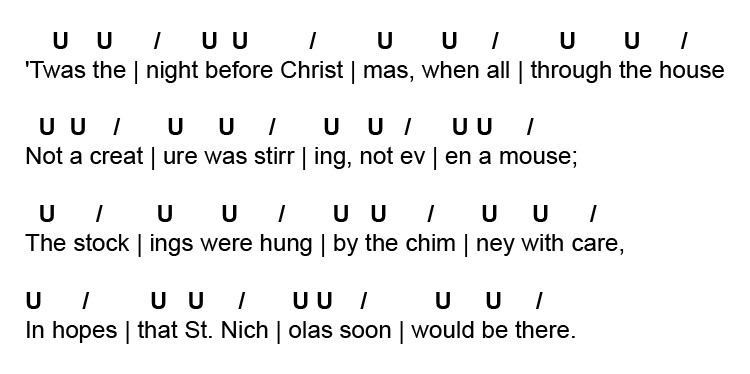Anapestic tetrameter
An anapestic foot (known as an anapest) has two short syllables followed by a long syllable (SSL, or UU/).
Tetrameter is four feet per line.
Example 1
NOTE:
There’s sometimes only one short syllable before the long syllable, as in the second and fourth lines of the second verse in the example below. Strictly speaking, this is an iamb (iambic), but it still sounds perfect in your “mind’s ear”. Poets do this from time to time for variation.

The Assyrian came down like the wolf on the fold,
And his cohorts were gleaming in purple and gold;
And the sheen of their spears was like stars on the sea,
When the blue wave rolls nightly on deep Galilee.
Like the leaves of the forest when summer is green,
That host with their banners at sunset were seen:
Like the leaves of the forest when autumn hath blown,
That host on the morrow lay withered and strown.
For the Angel of Death spread his wings on the blast,
And breathed in the face of the foe as he passed;
And the eyes of the sleepers waxed deadly and chill,
And their hearts but once heaved, and for ever grew still!
And there lay the steed with his nostril all wide,
But through it there rolled not the breath of his pride;
And the foam of his gasping lay white on the turf,
And cold as the spray of the rock-beating surf.
Lord Byron – from The Destruction of Sennacherib
A closer look at the feet in this poem
U = short syllable; / = long syllable; | = division between feet
Example 2
Again, a couple of iambs creep into this otherwise anapestic poem. Can you spot them?

Twas the night before Christmas, when all through the house
Not a creature was stirring, not even a mouse.
The stockings were hung by the chimney with care,
In hopes that St Nicholas soon would be there.
Clement Clarke Moore – from Twas the Night Before Christmas
A closer look at the feet in this poem

U = short syllable; / = long syllable; | = division between feet
Clement Clarke Moore – from Twas the Night Before Christmas
NOTE:
Anapestic metres have a sing-song, rolling feel to them, similar to the sound of horses trotting. It is a popular form for children’s rhymes and comic poetry.




